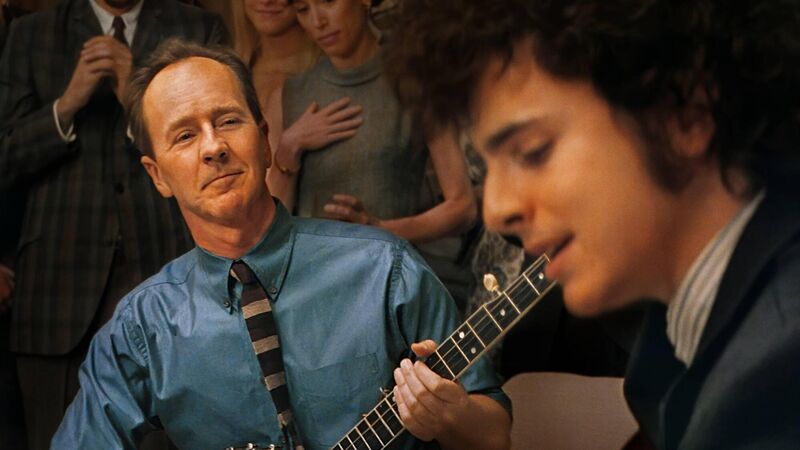A Complete Unknown: Edward Norton on playing Pete Seeger in the Bob Dylan film

Ed Norton as Pete Seeger and Timothée Chalamet as Bob Dylan in A Complete Unknown.
In the movie A Complete Unknown - a film about the musical legend that is Bob Dylan - Edward Norton plays another. Folk singer and social activist Pete Seeger was a regular on US radio over three decades and his music is celebrated to this day by artists including Bruce Springsteen.
Seeger was one of the earliest supporters of a young Dylan, and their musical relationship, as well as Dylan’s decision to “go electric” and the controversy that caused, are explored in the film.




